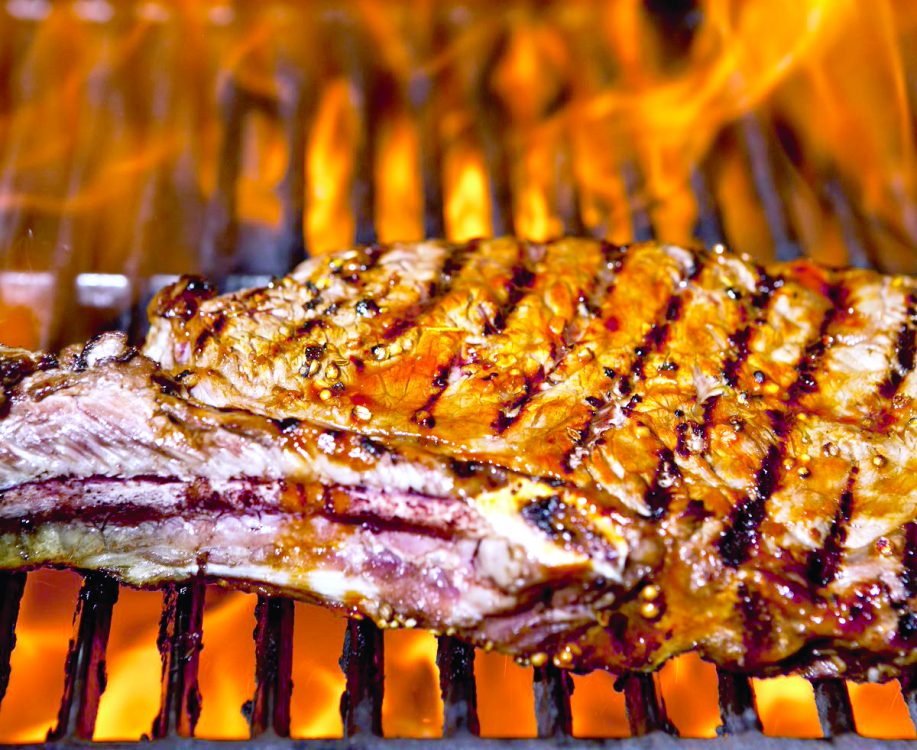How eating too much meat is fuelling a health crisis

Every evening, thousands of Kenyans gather around city bars and clubs as they recollect about their day’s activities. These sittings are normally accompanied by kilogrammes of meat washed down with bottles of alcohol.
This is just but an extension of a typical Kenyan weekend culture where tonnes of nyama choma, unofficial Kenya’s national dish, is consumed by millions of Kenyans thronging entertainment joints across the country for some enjoyment.
What a majority of citizens are not aware of are the risks that come with over-consumption of meat to both their own health, as well as its contribution to the current global crisis, climate change.
For Mark Andawa, going to an entertainment joint and gobbling kilos of meat alongside alcohol was part of his daily routine until his health took a dip.
Andawa says his love for meat, especially red grilled meat was insatiable and a day could not go without him consuming meat.
“It was like a doctor’s prescription that every meal should be accompanied by meat at home, but mostly at the bars where there was no control of the amount I would consume. In our Kenyan culture, when meat tastes good, you keep asking for more and more,” he says.
Also, meat consumption has for long been perceived as a sign of “heavy pockets”, and the more one consumes it is proof enough of a man earning well.
Over the time, Andawa says he started noticing changes with his weight and his first assumption was that it might be due to too much consumption of alcohol.
“I noticed that I could no longer walk for long distances and I was having challenges breathing. And my first action was to reduce my alcohol intake, but then there was no significant difference,” he notes.
Andawa then opted to go to the hospital where doctors discovered that he was suffering from Type 2 diabetes and hypertension.
“It came as a surprise, because I believed that diabetes is a hereditary disease and to learn that I got it due to my careless lifestyle was a shock,” he says.
With this discovery, it was clear that he was staring at a life of medication, but he had an option of remedying the situation.
Instead of whining and crying, Andawa chose to repackage his life by quitting on alcohol, roasted meat and sedentary lifestyle and forge a new path.
He says, “My first step was to quit alcohol and reduce the amount of meat I ate. This was not a walk in the park. It took me an entire year to comfortably eat a meal without meat. At first, it felt like torture, but then I got used to it.”
He further reveals that he also had to enroll for fitness classes in a move to shed off some of the excess weight. “It is close to a year now since I changed my lifestyle and I can tell for sure, an uncontrolled amount of meat can actually send someone to an early grave. I still consume meat, but with limitations,” he says.
Different studies have shown a great link between high consumption of meat and increased risk of various diseases such as heart diseases, diabetes, pneumonia, respiratory infections, high blood pressure, among other serious illnesses.
Also, initial studies have indicated that intake of red and processed meat heightens the risks of cancer, especially colon or bowel cancer.
Another 2019 report published in BMJ Medical journal found that consumption of red meat, processed meat and poultry meat, such as chicken and turkey, either alone or together, at least three times a week was not only linked to a greater risk of nine different illnesses, but also shortening of life span.
Their results add to the growing evidence from researchers and the World Health Organisation that eating too much meat, especially red and processed meat can damage one’s health.
Essential nutrients
Prof Catherine Kunyanga, an associate professor in the department of food science, nutrition and technology at the University of Nairobi says depending on age and gender, meat consumption needs to be limited so as not to cross the redline of being a health danger instead of being a source of proteins.
She says, for children, meat provides essential nutrients that support bone and muscle development and that is why parents are encouraged to feed their children on animal proteins.
“However, when it comes to adults, we only need a small portion of meat for iron, zinc and vitamins. Any extra consumed meat is converted to fats, which are stored in the body, which then result in obesity that comes with so many related diseases, such as diabetes, high blood pressure and much more,” she shares.
The professor says due to various reasons, such as culture and taboos, social economy, men are likely to suffer from the effects of over-consumption of meat.
“Men eat more meat, because of our cultural beliefs and taboos and also the fact that the majority do not like to eat vegetables and they are economically advantaged compared to women and, therefore, can afford to eat more meat,” she points out.
Kunyanga says there is no standardised recommendation of the amount of meat an individual is supposed to eat per day, because age and gender determines an individual’s amount of meat they should consume and, which is categorised as normal. Even though experts recommend 43 grammes of meat per day, the professor says this varies from person to person.
She says, there is need for behavioural change, especially on the meat-loving-Kenyans, adding that there is a need to educate them on the right amount of healthy consumption of proteins they require in their bodies.
Kunyanga also says for years, meat has been categorised as a sign of economic prosperity, while plant-based proteins, such as beans are foods for poor people.
“We need to move away from thinking that meat is a sign of wealth and cereals are for the poor. It is clear that the people we call poor are healthier, because they have embraced these alternative sources of proteins. And that is what people should do,” she notes.
To achieve this, she says, scientists are working towards ensuring the availability of these plant-based proteins.
“To encourage Kenyans to eat more legumes and cereals, we need to ensure we change the recipes of how grains taste, make sure there are ready-to-eat cereals to cut time wasted in cooking them, and also ensure they are much cheaper than meat. These are some of the solutions to reducing over-consumption of meat in Kenyan homes,” she notes.
In Kenya, despite tough economic times, a portion of households’ income, especially those in the middle class is set aside to purchase meat.
Dr Jane Njuguna from the directorate of veterinary explains that a Kenyan averagely consumes 16 kilogrammes of meat annually.
She says 75 per cent of this meat is consumed in Nairobi and Mombasa while the rest of the counties consume the remaining 25 per cent with beef and mutton being the most consumed meat.
Dr Victor Yamo, the farming campaigns manager at World Animal Protection (WAP) Africa, says 360 tonnes of meat is consumed every year globally.
He says, the situation is expected to get worse due to the growing population, urbanisation caused by people moving from rural to the town centres, as well as growing economic prosperity.
“By 2030, there will be a 30 per cent increase in meat consumption in Africa. The demand will then come with the need to produce more meat, which will see producers move to intensive animal farming,” he says.
He says this farming system will eventually have an impact on public health, because the animals’ welfare will be given a priority.
“Recent research and the history of pandemics shows intensive farming systems have contributed to 50 per cent of pandemics, including Covid-19. This will further contribute to the ongoing global crisis, climate change, due to its high greenhouse emissions,” Yamo says.
Yamo says there is a need to call for reduction on consumption of meat so as to reduce the demand and save Kenyans from both health and environmental effects.












